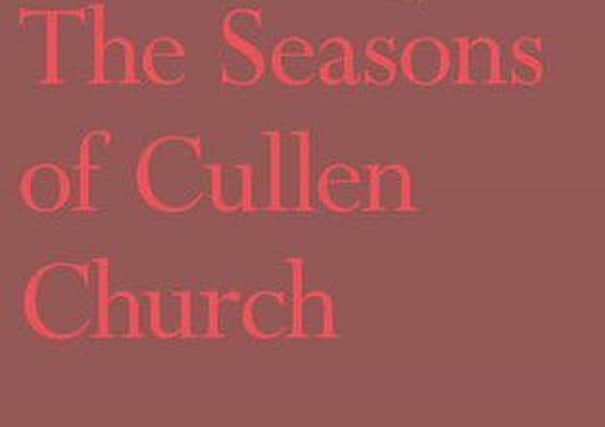Book review: The Seasons of Cullen Church, by Bernard O'Donoghue


O’Donoghue’s fascination with the Cullen of his youth is understandable – the place has changed dramatically. In “Robbing the Orchard” for example, he revisits the garden where he used to scrump apples, and discovers the trees are now “stunted / and choked by wintergrass” – not to mention that what used to be the school has been reduced to “a single wall / marked by ivy patterns”. There’s a sense that if the poet doesn’t record the place as it once was, it will soon vanish. Indeed, his memories are already fading. “Waiting For The Horses” begins: “So wistful is the recognition now / of all the places that I hardly noted: / places I know I saw once or twice, / their occasions unrecallable”.
However, it’s the stories of Cullen that the poet seems most determined to preserve – snippets of local folklore, often elegiac in tone. In “The Din Beags”, he recalls three childless sisters and their younger brother, whose beloved horse faces a brutal burial at the hands of a gravedigger who doesn’t see any need to accord dignity to a dead animal; in Sawdust it’s the tale of the circus strong man who may or may not have met a sticky end when one of his stunts went wrong. Cruelty is mostly presented as a given. In The Will the poet notes that when his family discovered his grandfather was going to die young, “they naturally set about / ensuring that his wife would not inherit / the farm.”
Advertisement
Hide AdIf these extracts make O’Donoghue’s style sound straightforward, almost conversational, that’s because it often is. Yet these poems are packed with scholarly allusions. Decoding is sometimes required, but always rewarding. At first glance, for example, “Euryalus” appears to be a straight, two-part translation of the Euryalus subplot in The Aeneid – the first half is an almost line-by-line retelling of how Euryalus wins a running race thanks to the dubious intervention of his devoted friend Nisus; the latter an account of how he is killed during a raid, despite Nisus’s efforts to save him. The poem is dedicated to Mick Imlah, the Scottish poet and editor who died young of motor neurone disease in 2009. Imlah was not only a great poet but, in his Oxford days, where O’Donoghue first got to know him, a great sportsman, too. The dedication of a poem about a runner, then, seems apt, and when O’Donoghue ends the first half with a reference to “the power of his youth / just now coming into its own, and made / all the more appealing by his beauty”, the tragedy of the second half – and Imlah’s untimely death – is all the more poignant.
But should we be focusing on Euryalus? In the race, Nisus takes the lead, then falls, impeding second-placed Salius to enable Euryalus to win. So really Salius was the rightful victor. In the original, Aeneas gives Salius a lion hide, but in this version the sense of injustice is ramped up – there is no lion hide. Imlah’s fate, then, is reflected in the fates of both men. As with everything O’Donoghue writes, the more you look, the more you see.
The Seasons of Cullen Church, by Bernard O’Donoghue, Faber & Faber, 55pp, £12.99